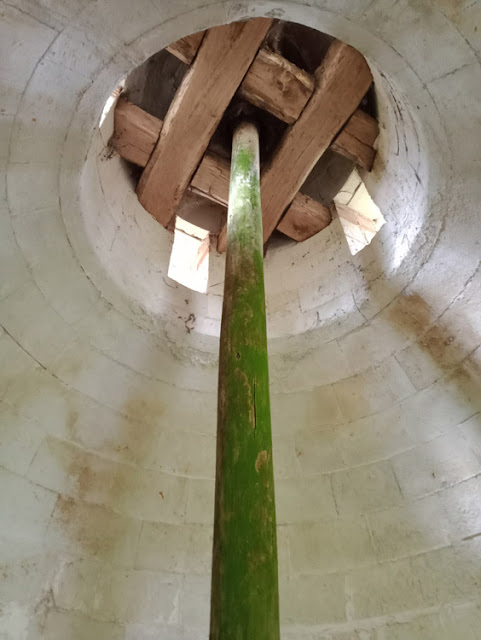The Puys du Chinonais, of which the Puy Besnard is one, form a nature reserve near Chinon. The site, which covers an area of 150 ha, is in fact made up of a series of hillocks (Puy comes from the Latin "podium" which means " hill"), a few kilometres apart, which correspond to areas of the plateau that are less sensitive to erosion than the surrounding land. The sandy and calcareous soils and the mild climate have contributed to the establishment of a flora with Mediterranean overtones, such as the large-flowered sandwort. Until the 19th century, windmills produced flour on these hills, and the inhabitants cultivated asparagus and vines to take advantage of the sandy soil. Traces of these former uses are still present. The caves and former troglodytic habitats are now used by bats during the day as resting sites. Gradually abandoned by man, the puys constitute an exceptional grouping that is home to numerous protected species.
The Association de botanique et de mycologie de Sainte Maure de Touraine visited the Puy Besnard on 15 April 2023.
 |
Darkling beetle Phylan abbreviatus (Fr. Ténébrion abrégé), an uncommon beetle that is on the very northern edge of its range.
|
 |
Looking at lichens.
|
 |
Psora decipiens lichen, characteristic of semi-arid, temperate and arctic habitats. It is remarkably resilient in habitats that are affected by climate change, possibly due to its natural variability.
|
 |
Tassel Hyacinth Leopoldia comosa (Fr. Muscari à toupet), not quite fully out.
|
 |
Cypress Spurge Euphorbia cyparissias (Fr. Euphorbe petit-cyprès), normal and healthy on the left, affected by rust fungus on the right.
|
 |
Cypress Spurge affected by Broad Bean Rust Uromyces pisi-sativi (Fr. Rouille du pois).
|
 |
Scrub bashing.
|
 |
Abandoned post mill (Fr. moulin cavier), a type of windmill for grinding wheat into flour.
|
 |
The interior of the post mill.
|
 |
The eponymous post in the post mill.
|
 |
A bunch of naturalists on an abandoned post mill.
|












No comments:
Post a Comment